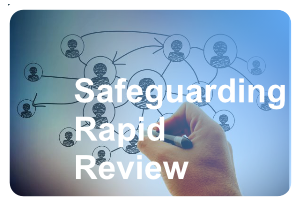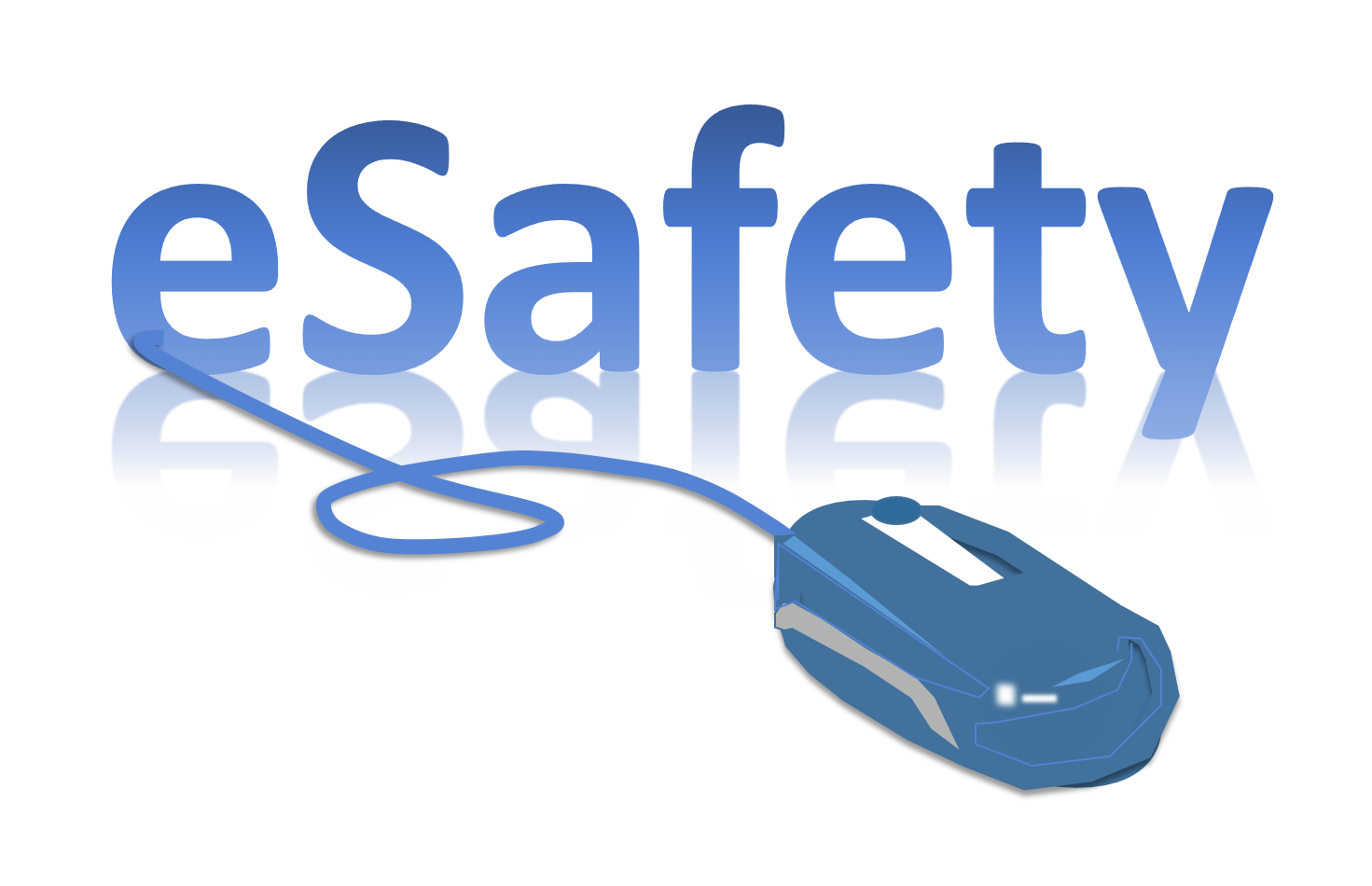Safeguarding News November 2022

Urgent Safety Alert issued for baby self-feeding pillows
The Office for Product Safety and Standards has issued an Urgent Safety Alert for baby self-feeding pillows and is urging the public to stop using them immediately and dispose of them safely. Businesses selling these products must immediately remove them from the market as they cannot comply with the safety requirements under the General Product Safety Regulations 2005. Baby self-feeding pillow products are designed to be attached to a bottle so that the baby may be positioned on its back to self-feed without the assistance of a caregiver holding the bottle and controlling the feed. This is inconsistent with NHS guidance in relation to safe bottle feeding.
When used as intended, even whilst under the supervision of a caregiver, it could lead to immediate, serious harm or death from choking or aspiration pneumonia. Consumers, local authority trading standards services and businesses are asked to take specific action to cease use or remove these products from the market as advised.
Anti-bullying week was held on 14-18 of November
The theme of Reach Out and Odd Socks came about following consultation with teachers and pupils by the Anti-bullying Alliance which coordinates Anti-Bullying Week every year in England and Wales. Teachers and children wanted a theme that empowered them to do something positive to counter the harm and hurt that bullying causes.
Safeguarding Rapid Review Service
Taking just two hours management time via Zoom or Teams, SAFEcic's Safeguarding Rapid Reviews are ideal for all sectors including Ofsted, CQC and Charity Commission regulated organisations.
Rapid Reviews are a proven, cost-effective and efficient way to gain external, expert insight and support to help their organisation attain the highest level of safeguarding culture, policy, procedures and practice.
Each Rapid Review includes the preparation of a high-level assessment report and a RAGGED (Red, Amber, Green) action plan to efficiently and cost effectively address any issues identified.
At SAFEcic, we are experts in safeguarding and have over twenty years' experience in identifying and addressing safeguarding issues. Rather than relying on time consuming paperwork, each rapid review combines our expertise in safeguarding with your management team's existing knowledge of procedures and practices within your organisation.
Delivered by one of SAFEcic's multi-agency safeguarding experts, Rapid Reviews assess your organisation's safeguarding culture by scrutinising:
- Context of Work: the relevant regulatory requirements across the UK and overseas, emerging risks, considerations, impact
- Structure:responsibilities, leadership, accountability, Safeguarding Leads, resilience.
- Policy:safeguarding, eSafety, Code of Conduct, whistleblowing
- Recruitment and Training: legal requirements, safer recruitment processes, training strategy and delivery
- Safeguarding Practice:client, beneficiary, student and/or patient engagement, supervision, lone working, transport, photography, home visits)
- Partnerships:statutory, private and charity sectors
- Safeguarding Concerns:procedures
- Recording and Retentionconfidentiality, consent, Data Protection, information sharing
- Other issues for the organisation: including, as relevant, buildings and venues, communication, ethical fundraising, events, Health and Safety, serious incidents
all in just one two hour information gathering session, with RAGGED action plan usually delivered within 5 working days.
Costs:
Charities: £300; Educational: £400; and Commercial: £900.
Don't forget to check out our latest training schedule (below) and please feel free to share this email with your colleagues and they too can join our newsletter database.
To sign up simply click here.
Services Update
SAFEcic is also accepting many more bookings for its face to face safeguarding training and audit services. There is also a packed calendar of blended learning events available to book for your organisation. The courses are a very cost effective way of training your staff and volunteers.
SAFEcic Blended Learning Training Calendar
Leading on Child and Adult Safeguarding
Safeguarding Training, Leading on Child and Adult. Online course plus Zoom
Tue 24 January 2023
10:30 - 12:00 GMT
Safeguarding Training, Leading on Child and Adult. Online course plus Zoom
Wed 22 February 2023
10:30 - 12:00 GMT
Safeguarding Training, Leading on Child and Adult. Online course plus Zoom
Tue 14 March 2023
10:30 - 12:00 GMT
Safeguarding Training, Leading on Child and Adult. Online course plus Zoom
Wed 19 April 2023
10:30 - 12:00 GMT
Safeguarding Training, Leading on Child and Adult. Online course plus Zoom
Thu 11 May 2023
10:30 - 12:00 GMT
Safeguarding Training, Leading on Child and Adult. Online course plus Zoom
Wed 14 June 2023
10:30 - 12:00 GMT
Safeguarding Training, Leading on Child and Adult. Online course plus Zoom
Tue 11 July 2023
10:30 - 12:00 GMT
Standard Child and Adult Safeguarding
Safeguarding Training, Standard Child and Adult. Online Course plus Zoom
Thu 19 January 2023
10:30 - 12:00 GMT
Safeguarding Training, Standard Child and Adult. Online Course plus Zoom
Wed 15 March 2023
10:30 - 12:00 GMT
Safeguarding Training, Standard Child and Adult. Online Course plus Zoom
Tue 9 May 2023
10:30 - 12:00 GMT
Safeguarding: Trustees’ legal responsibilities
Safeguarding: Trustees' legal responsibilities. Online Course plus Zoom
Tue 7 February 2023
10:00 - 11:30 GMT
Safeguarding: Trustees' legal responsibilities. Online Course plus Zoom
Thu 20 April 2023
10:00 - 11:30 GMT
Safeguarding: Trustees' legal responsibilities. Online Course plus Zoom
Wed 21 June 2023
10:00 - 11:30 GMT
Safer Recruitment Training. Online course plus 2 Hr Live Online training
Tue 17 January 2023
10:00 - 12:00 GMT
Safer Recruitment Training. Online course plus 2 Hr Live Online training
Thu 23 March 2023
10:00 - 12:00 GMT
Safer Recruitment Training. Online course plus 2 Hr Live Online training
Wed 24 May 2023
10:00 - 12:00 GMT
Safer Recruitment Training. Online course plus 2 Hr Live Online training
Wed 12 July 2023
10:00 - 12:00 GMT
SAFEcic's free hub resources by setting are available through the SAFEcic.co.uk main menu. Alternately you can bookmark the links below:
Education | Dental | Charities | GP & Primary Medical Services | Fath Groups | Entertainment & Leisure | Working Overseas |
Legislation
Online Safety Bill
New internet safety laws will go further than before to shield children and protect free speech online, thanks to improvements proposed by the government. Any incentives for social media firms to over-remove people’s legal online content will be taken out of the Online Safety Bill. Firms will still need to protect children and remove content that is illegal or prohibited in their terms of service, however the Bill will no longer define specific types of legal content that companies must address. This removes any influence future governments could have on what private companies do about legal speech on their sites, or any risk that companies are motivated to take down legitimate posts to avoid sanctions.
New measures will also be added to make social media platforms more transparent and accountable to their users, as a result of amendments the Government will propose.The changes will offer users a ‘triple shield’ of protection when online: social media firms will be legally required to remove illegal content, take down material in breach of their own terms of service, and provide adults with greater choice over the content they see and engage with.
Parents and the wider public will benefit from new changes to force tech firms to publish more information about the risks their platforms pose to children so people can see what dangers sites really hold. Firms will be made to show how they enforce their user age limits to stop kids circumventing authentication methods and they will have to publish details of when the regulator Ofcom has taken action against them.
The Bill will instead give adults greater control over online posts they may not wish to see on platforms. If users are likely to encounter certain types of content - such as the glorification of eating disorders, racism, anti-semitism or misogyny not meeting the criminal threshold - internet companies will have to offer adults tools to help them avoid it. These could include human moderation, blocking content flagged by other users or sensitivity and warning screens. The legal but harmful measures will be replaced with new duties which strengthen the Bill’s free speech requirements on major online platforms to make them more accountable for their policies. It will explicitly prohibit them from removing or restricting user-generated content, or suspending or banning users, where this does not breach their terms of service or the law. In addition, firms will need to have clear, easy to understand and consistently enforced terms of service.
There is overwhelming public backing for action. Eight in ten people (81 per cent) think the government should make sure social media companies protect children when they are online and 77 per cent think social media companies should be punished if they don’t protect children
safety duties, and illegal content duties. No date has yet been confirmed for the Bill’s remaining stages.
Reports, Reviews, Inquiries and Consultations

1. The final report of the Independent Inquiry into Child Sexual Abuse, published in October 2022, said children had suffered as a result of “a marked absence of a cohesive set of laws and procedures in England and in Wales that require individuals working with children to report child sexual abuse”.
The report recommends the UK Government and the Welsh Government introduce legislation placing certain individuals – ‘mandated reporters’ – under a statutory duty to report child sexual abuse in prescribed circumstances (e.g., where they observe recognised indicators of sexual abuse).
The report recommends it should be a criminal offence for mandated reporters to not report child sexual abuse where they are in receipt of a disclosure of child sexual abuse from a child or perpetrator, or witness a child being sexually abused.
The Government has said it will provide “a comprehensive response” to the report’s recommendations within six months of its publication.
This briefing report sets out the current position regarding reporting child abuse in England, and calls the calls for the introduction for a mandatory reporting duty.
2. Inquiry: So-called honour-based abuse
Women and Equalities Committee
The Committee’s inquiry aims to understand more about the nature and prevalence of abuse committed to protect or defend the so-called honour of an individual, family or community. Research indicates that abuse motivated by so-called honour is most often directed at women, with crimes including murder, female genital mutilation, forced marriage and physical and psychological abuse.
There were 2,887 honour-based abuse-related offences recorded by the police in England and Wales in the year ending in March 2022, though the Home Office says it is a hidden crime and these are likely to only represent a small proportion of the actual offences committed that year.
MPs are interested in exploring the barriers faced by victims of such abuse in seeking support or protection. The police response and the legal protections for victims will also be examined in the inquiry.
The Women and Equalities Committee is inviting written submissions by 19 December 2022 addressing any or all the following points:
- What forms of violence against women and girls are motivated by so-called honour? Are these different forms understood by the Government, police and other agencies?
- How prevalent is honour-based abuse? What do we know about the background or characteristics of victims and perpetrators?
- What is known about abuse practised under the pretext of upholding cultural norms? Is there available data and/or research on the prevalence of these practices?
- What are the challenges or barriers faced by victims of honour-based abuse in seeking support or protection?
- How would you assess the police response to honour-based abuse? How could it be improved?
- Is the current law in relation to honour-based abuse adequate to protect victims? If not, what should change?
- What are the challenges for services supporting victims of honour-based abuse? How could those challenges be mitigated or overcome
If you are in need of support, here are some organisations which could assist you: - Freedom Charity - UK-based charity formed to give support to victims of forced marriage and violence upon women thought to have brought dishonour on their family. Helpline: 0845 607 0133 or text the words 4freedom: to 88802
- The Halo project - A national project run by and for the black and minoritised community aiming to eliminate forced marriage, honour based abuse and female genital mutilation.
- The Asian Women’s Centre - They offer ‘support to women and children who have been affected by domestic abuse, forced marriages, honour based and faith-based abuse. The centre are part of a pan-London partnership and on their Projects page they give links to other community based organisations working in the same field.
3. The Isle of Man Safeguarding Board has published a Serious Case Management Review (SCMR) following a domestic homicide and serious assault on Island.
The review highlights the significant impact of Adverse Childhood Experiences (ACEs) in developing mental ill health, recommending a ‘Think Family’ approach for services dealing with complex families. The independent review was carried out following the homicide of a mother and a serious assault on father by their son who was suffering from a severe psychiatric condition. The ‘Think Family’ approach requires services to consider the impact of the experiences or events on all members of the household when dealing with issues such as domestic abuse or alcoholism.
It concludes that while the assault on Mr K and murder of Mrs K could not have been predicted or prevented, there are areas of learning for government agencies which are fundamental to reducing the risk of poor outcomes for others in the future.
In this case it was documented that the son had experienced multiple adverse experiences in his younger years; witnessing the domestic abuse of his mother, parental alcoholism, family instability and caring responsibilities. The adults in the family at the centre of this review had longstanding issues with alcoholism and domestic abuse, and despite multiple agencies intervening or offering support, all assistance was refused by them. It was also documented that the son was listed as a young carer for his disabled father, but this was not adequately recognised and there was a lack of professional curiosity about his day to day lived experience.
The report says that it is critical that practitioners do not just focus on the experiences and perspectives of the victim and perpetrator but include all members of the family and household by having a ‘Think Family’ approach. The report also makes recommendations to improve the measures in place to tackle domestic abuse, support and identify young carers and improve the sharing of information between agencies.
The report made four specific recommendations to the safeguarding agencies that make up the Safeguarding Board. The Board have accepted the recommendations as set out in their response and learning brief:
- The Isle of Man Safeguarding Board should assure itself that there are robust measures in place for responding to incidents of domestic abuse, including considering the risks and vulnerabilities of all people within the household, particularly children and young people
- Manx Care should lead an awareness raising campaign about being a young carer. The campaign should target key services for children and young people
- The Department of Health and Social Care, working in partnership with Manx Care, should assure there are robust processes in place to correctly identify an adult/child’s registered GP
- The review should be shared with the Department of Home Affairs to inform the implementation of its Domestic Abuse strategy to address some of the concerns around multi-agency notification and risk assessments.
Worthy of Note
1. There is no excuse for domestic abuse’ the Crown Prosecution Service has said as cases are expected to rise during the World Cup. Stark figures published last year by the National Centre for Domestic Violence uncovered the shocking reality that incidents of domestic abuse increase following England games.
Data showed reported incidents increased by 26 percent if England play, 38 percent if England lose, and 11 percent the next day, win or lose. This is of huge concern for the Crown Prosecution Service as reports of domestic abuse continue to rise, with the CPS determined to do all it can to bring perpetrators of this abhorrent crime to justice and provide protection for victims.
With cases expected to rise, specially trained prosecutors are on hand to advise police and make charging decisions during the World Cup through our out-of-hours charging service CPS Direct. At peak times, prosecutors working in the CPS Direct team can receive up to 70 to 80 calls an hour for charging decisions, with the festive period continuing to be one of the busier periods and cases of domestic abuse expected to rise. Domestic abuse remains a high priority for the CPS, with extensive work continuing to better understand and improve how cases are handled, which has seen a high charge rate in cases of domestic abuse. To shift the focus from the victim and better support them, prosecutors and police take a suspect-centric approach to build stronger cases. This requires looking at the behaviours of the suspect before, during and after the alleged incident.
The CPS updated legal guidance on Restraining Orders will help prosecutors take all the necessary and appropriate steps to ensure victims are protected from further harm
2. Department of Levelling up Housing and Communities details that rogue landlords, who exploit the supported housing system at the expense of vulnerable residents, could be banned from operating or fined up to £30,000 as enforcement is stepped up across the country. A £20 million government fund will support councils to crack down on landlords who profit through benefit claims but fail to support their vulnerable residents.
Supported housing provides accommodation alongside care, support, or supervision for residents who may have experience of homelessness, mental health issues or domestic abuse. Poor performing landlords will need to improve and provide better accommodation and support or face enforcement action, including penalty charge notices of up to £30,000, prohibition orders on the most dangerous properties or even prosecution.
The funding will enable councils to step up inspection of accommodation standards and provide enhanced scrutiny of Housing Benefit claims to ensure they are reasonable. It will also improve local enforcement of the quality of accommodation and support to residents including supervision, advice, or help with life skills, to help tenants live independently in the community. The announcement comes ahead of the second reading of Bob Blackman’s Private Members Bill on 18 November which seeks to address poor-quality supported housing.
Regulators
Police super-complaints
Ten years since the stalking legislation was brought into force, the Suzy Lamplugh Trust, on behalf of the National Stalking Consortium, launches a super-complaint against the police finding systemic issues in the response to stalking across England and Wales. The Consortium, which is comprised of 21 stalking specialists including frontline services, victims and academics, has collated evidence that suggests there are deep-rooted systemic issues across police forces that are putting many victims at risk. Only 5% of reports of stalking to the police in the year ending March 2022 resulted in a charge by the Crown Prosecution Service (CPS).
Issues of concern include a lack of understanding among officers as to what behaviours constitute stalking, as well as treating behaviours as single incidents as opposed to recognising the wider pattern of behaviour. It is common for the crime to be investigated as a ‘lower-level’ offence, such as malicious communications or criminal damage, or to be misidentified as harassment, thus setting a course for an incorrect pathway through the criminal justice system.
The Consortium is also highly concerned that in the cases where stalking is identified, too often police are not investigating the crime appropriately, erroneously dropping cases due to a perceived lack of evidence; for example, incidents of unwanted online behaviour such as the use of social media, emails and phone calls. In the year ending March 2022, a quarter1 of all stalking reports were dropped due to issues relating to evidence, in cases where the suspect had been identified and where the victim supported action.
HM Inspectorate of Constabulary and Fire & Rescue Services (HMICFRS), the College of Policing and the Independent Office for Police Conduct (IOPC) have published a report in response to the super-complaint submitted by the Centre for Women’s Justice on police perpetrated domestic abuse. The super-complaint raised concerns about how police forces in England and Wales respond when police officers and police staff are accused of domestic abuse.
A joint investigation by HMICFRS, the College of Policing and the IOPC found that forces are not fully recognising and responding to the risks and responsibilities associated with domestic abuse allegations involving police suspects. It is vitally important that forces both respond robustly to such cases and are seen to do so.
The report includes a series of recommendations aimed at better investigations and better protection of victims in these cases. There are recommendations for chief constables, as well as for the Home Office, the Ministry of Justice and police and crime commissioners. There are also actions for the College of Policing and the IOPC. These are focused on ensuring national guidance and legal requirements are consistently followed, as well as growing an evidence base for effective practice.
Scams
A high-value serial romance fraudster has been found guilty on the 3 November 2022 of duping victims out of just over £324,000 in an investment scam. Emmanuel Scotts, 55, has been convicted of four counts of Fraud by False Representation at Kingston Crown Court. Scotts pretended to four female victims that he met through an online dating agency that he was a successful stockbroker and that he could make high returns on investment opportunities, in different places including Hong Kong. He also used three aliases in his dealings with one of the victims. The prosecution team showed that there were no genuine investment opportunities, and that Scotts used the victims' money for gambling and supporting himself and his family. The total losses suffered by the four victims amount to £324,487.
Anyone speaking to someone they do not know or have not been in contact with for a long time is urged to follow the ‘Take Five to Stop Fraud’ advice. Members of the public are encouraged to:
- Stop and think before parting with your money or information in order to keep you safe;
- Challenge whether the information or request you have received could be fake. It is ok to reject, refuse or ignore any requests as only criminals will try to rush or panic you;
- Protect yourself by reporting any scams you think you have fallen for to Action Fraud on 0300 123 2040 and to your bank immediately.
If you think you have been a victim of a romance scam - you are not alone. Contact your bank immediately and report it to Action Fraud on 0300 123 2040 or online.
eSafety
1. Registered sex offender Christopher Kelly (56) of Cranbook Street, Radcliffe was sentenced at Minshull Street Crown Court on Friday (28 October 2022) to 2 years in prison after pleading guilty to breaching his Sexual Harm Prevention Order (SHPO) and using the internet to contact girls under the age of 18.
2. A man from Loughborough who admitted being “sexually attracted to babies and toddlers” has been jailed for 25 years, after he paid for the abuse of young children in Asia.
National Crime Agency investigators identified that Ian Wynter, 59, targeted financially vulnerable individuals in countries such as the Philippines and Indonesia. He would give them explicit direction and pay them to live stream themselves carrying out the abuse.
Wynter was arrested by the NCA in January 2020 after flying into Gatwick Airport from Shanghai, China, where he had been living and working. Officers seized a number of electronic devices, including phones, a laptop and an external hard drive from him at the airport, as well as from his UK home in Loughborough.
They recovered thousands of online chat logs which showed Wynter speaking with offenders based all over the world. In the chats, Wynter describes himself as a “paedophile” who is “sexually attracted to babies and toddlers”. As well as discussing raping them among other horrific ‘fantasies’, he also advised others on how to carry out abuse without getting caught.
While on a trip to Thailand in 2020, he engaged in an online conversation with another paedophile about potentially finding a local child to abuse. The chat logs and financial records showed that Wynter had paid a man in the Philippines to abuse a two-year-old boy for him via video call, on multiple occasions in 2019. Video recordings of these calls made by Wynter show him directing the abuse throughout, as well as requesting specific sexual acts in the chat box.
Additional messages show the man telling Wynter he is in financial difficulty and needs money for “milk and diapers”. Wynter later passed on the contact details of the Filipino facilitator to another online user, who he said was willing to pay “$125 up front for a show”.
The facilitator has since been sentenced to 15 years in prison in the Philippines and local authorities safeguarded the child. Wynter also paid another male facilitator in Indonesia for several video calls of him abusing two-year-old boy in 2018. In this case, the man said the money would help pay for his diploma.
17,000 indecent images of children (6,000 in category A) were stored across Wynter’s devices, many of which he had also shared online. Within these was a naked image of a child that he had taken himself. In June this year, Wynter pleaded guilty to 13 charges including multiple counts of encouraging the sexual assault & rape of a child under 13 and the possession and distribution of indecent images of children.
He was sentenced on 9 November 2022 at Leicester Crown Court to 25 years in prison. He will also be subject to an indefinite Sexual Harm Prevention Order and has been placed on the Sex Offender Register.
3. The Internet Watch Foundation (IWF) has added its voice to an open letter calling for action from all those in the European Union with a stake in protecting children online.
The letter, signed by more than 70 civil society and child rights organisations, applauds what has been done so far by child protection organisations and the tech industry, but emphasises that more must be done to strengthen the European’s Commission’s proposed legislation to tackle child sexual abuse online.
The letter says that advances in technology and law enforcement could provide the tools needed to eradicate child sexual abuse materials from online platforms in a manner that respects the privacy of internet users.
Reasons to Remain Vigilant in All Aspects of Safeguarding
1. Police officers were called to an address in Eastbourne after a report of a domestic incident there at 11.40pm on 14 June 2021
They were appalled at the filthy condition of the house, from which 35 dogs were also taken into safe keeping.
Christopher Bennett, 35, and Gemma Brogan, 41, were sentenced at Lewes Crown Court on Friday 4 November having pleaded guilty on 9 May to seven counts of child neglect. The RSPCA were also called to the address and removed the 35 dogs and one deceased dog and took them into their care. They have subsequently been rehomed.
Both Bennett and Brogan pleaded guilty to animal cruelty after being prosecuted by the RSPCA during separate cases in February and August this year.
Brogan was sentenced to an 18-week prison sentence suspended for two years. She was given a five-year ban for all animals, 30 Rehabilitation Activity days and 100 hours of community service work. Bennett was sentenced to 18 weeks' imprisonment and was disqualified indefinitely from keeping all animals.
2. Mother And Step-Father Jailed For Life for Torture and Murder of Their Child, Kirklees
Agnieszka Kalinowska (36) and Andrezej Latoszewski (38) both of Leeds Road,
Huddersfield were sentenced) at Leeds Crown Court for the murder of Sebastian Kalinowski (15) in August 2021.
The sentencing was welcomed by senior officers at Homicide and Major Enquiry Team who said the couple’s treatment of Sebastian during the short time he was in the UK had been truly wicked.
Andrezej Latoszewski (38) was sentenced to life with a minimum term of 39 years for murder, neglect and causing or allowing the death of a child. Agnieszka Kalinowska (36) was sentenced to life with a minimum term of 39 years for murder, neglect and causing or allowing the death of a child.
Emergency services were called to their property on Leeds Road on August 13 after Sebastian was found unresponsive. He was taken to hospital where it was confirmed he had died. Medical examinations revealed the teen, who was small for his age, had suffered 23 fractures to his ribs over a period of time and died of sepsis.
Leeds Crown Court heard that CCTV recovered from the property showed he had been physically abused, and assaulted with weapons including a bed frame slat, wooden spindle, an electric flex and a needle, in a way which would not leave obvious injuries. The 15-year-old, spoke little English and had only arrived in the UK in October 2020 to live with his mother, and is thought to have lived an isolated life in which he had nowhere and no-one to turn to.
3. The number of websites found to be accepting cryptocurrency payments for sexual content of children has doubled almost every year since 2015, with a new specialist unit launching to tackle the “escalating problem”.
The Internet Watch Foundation (IWF) is warning that criminals are using cryptocurrencies to access or buy images and videos of children suffering sexual abuse and rape online. Last year (2021), the IWF identified 250,000 websites containing child sexual abuse. Of these, 1,014 sites gave criminals the option of using virtual currencies to access or buy videos and images of children being sexually abused and raped.This compares to 468 sites allowing these crypto payments which the IWF identified in 2020. In 2019, 221 were identified, and in 2018, only 81 were found.
The IWF has now launched a new “crypto unit” in response to the increasing numbers and is receiving daily requests for information from law enforcement around the world, from the New Zealand police to the Austrian Criminal Intelligence Service and the Internal Revenue Service’s Criminal Investigation branch in the United States, as well as the Metropolitan Police in the UK. The UK-based IWF is Europe’s largest hotline dedicated to finding and removing images and videos of child sexual abuse material (CSAM) from the internet.
4. The deputy head of a primary school from London has pleaded guilty to five child sexual abuse offences.
Matthew Smith, 34, was arrested by National Crime Agency officers at his home in East Dulwich on Sunday 6 November. Smith was charged with causing or inciting the sexual abuse of a child under 13, distributing indecent images of children (IIOC) in category A, and three counts of making IIOC in categories A-C.
He pleaded guilty to all five counts yesterday [09/11/2022] and is due to appear at Southwark Crown Court for sentencing on a date to be fixed.
This remains a live investigation, with early indications of significant online offending and international lines of inquiry.
And Finally
Safer Internet Day 2023 is on the 7th of February 2023 and will be celebrated with the theme ‘Want to talk about it? Making space for conversations about life online’.
Coordinated in the UK by the UK Safer Internet Centre, the celebration sees thousands of organisations get involved to promote the safe, responsible and positive use of digital technology for children and young people .In the UK, it is celebrating by putting children and young people’s voices at the heart of the day and encouraging them to shape the online safety support that they receive. Safer Internet Day free educational resources are now available:
The resources are tailored for 3-7s, 7-11s, 11-14s, 14-18s, and parents and carers
It is also time to register support for the day as Supporters Registration is now open.









